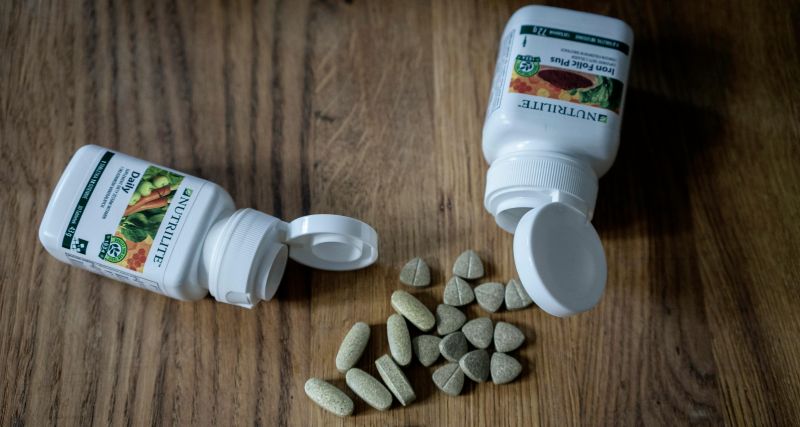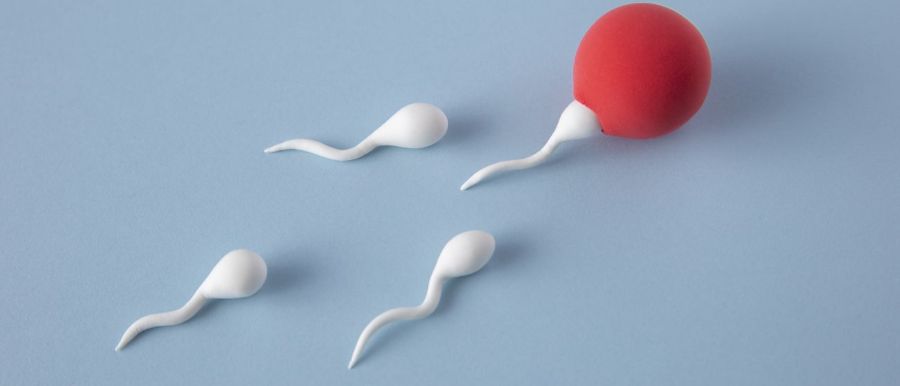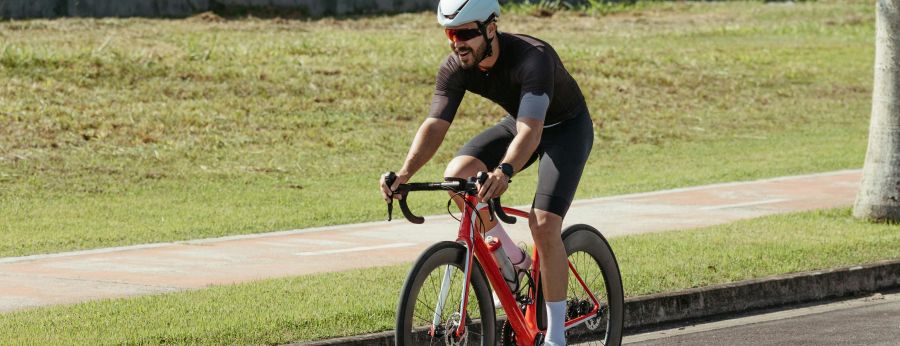Estrategias Después de un FIV Fallido

Facing a cycle of In Vitro Fertilization (IVF) What did not result in pregnancy is undoubtedly a very difficult time for couples who dream of starting a family. It's normal to feel a mix of sadness, frustration, and perhaps confusion. But it's important to know: an IVF cycle that doesn't work doesn't mean the end of the road. In fact, many couples achieve their pregnancy in subsequent attempts.
This article will guide you through the options and strategies that exist after such an outcome, helping you to better understand the process and make decisions with more confidence.
Important Points:
- It's not the end: An IVF cycle without pregnancy does not indicate that future attempts will not work. Most IVF pregnancies are achieved after several attempts.
- Learning from the past: Each failed cycle gives us valuable information. A detailed medical evaluation can help us understand what happened and how to adjust the plan for the future.
What Does a “Failed IVF Cycle” Really Mean?
Medically, we speak of a “failed” IVF cycle when, after embryo transfer, a clinical pregnancy is not confirmed. It can also happen if viable embryos cannot be obtained to transfer from the start.
It is essential to understand that this technique, although very effective, It does not guarantee pregnancy on the first attempt. La Spanish Fertility Society (SEF) He points out that around the 70% of IVF cycles don't result in pregnancy on the first attempt [^1]. This doesn't detract from the effectiveness of IVF; it simply underlines that persistence is often key.
After a Cycle: What Is Evaluated?
After an unsuccessful IVF cycle, the next crucial step is a full evaluation. This helps us understand the “whys” and adjust the plan for the next attempt. Here are the key points we reviewed:
1. Embryo Quality
Our embryologists analyze embryos from the previous cycle with a magnifying glass: their shape (morphology), how quickly their cells divided and how they developed to the blastocyst stage. This analysis can tell us if the medication for ovarian stimulation needs to be changed or if techniques such as Intracytoplasmic Sperm Injection (ICSI) might be more suitable.
2. Preparing the Uterus (Endometrial Receptivity)
For an embryo to implant, the inner lining of the uterus, called endometrium, should be at its optimum. After a failed cycle, we can suggest tests such as:
- Ultrasound: To measure the thickness of the endometrium.
- Uterine Doppler: To evaluate blood flow to the uterus.
- Hysteroscopy: A small procedure to see the inside of the uterus and rule out structural problems such as polyps or fibroids that make it difficult to implant.
These tests help us find the perfect time for the transfer or to identify if there is anything that needs to be treated in the womb.
3. Immunological Factors
In some cases, the body may “reject” the embryo due to responses from its immune system. A study in Fertility and Sterility suggests that even the 20% of repeated implantation failures may have an immunological component [^2]. Specific tests may be performed to look for:
- Alterations in cells called “natural killer” (NK).
- Immunological compatibility problems between the couple and the embryo.
Your Choices After a Failed Cycle
After the evaluation, there are several paths you can consider, always adapted to your situation and medical findings:
1. Repeat the IVF Cycle
It's the most common and often the most effective option. Statistics show us that the chances of success increase significantly with each attempt. La European Society for Human Reproduction and Embryology (ESHRE) reports that the cumulative success rate after three full cycles can exceed 60% in women under 35 years of age [^3].
2. Transfer Frozen Embryos (if you have)
If additional embryos were obtained in your previous cycle that could be frozen (cryopreserved), using them is an excellent alternative. It's less invasive and generally less expensive than starting a new cycle from scratch. Thanks to advanced freezing techniques such as vitrification, success rates with frozen embryos are now very similar to those of fresh embryos.
3. Egg or Sperm Donation
When the quality of eggs or sperm is the main obstacle, the gamete donation (donor eggs or donor sperm) may be the most effective option. It is very relevant in cases of older women or women with low ovarian reserve, where the chances of having their own eggs are lower.
Egg donation, for example, offers success rates that often exceed 50% per transfer, regardless of the age of the recipient woman [^4].
Settings in your Next IVF Protocol
Based on the evaluation of your previous cycle, your specialist may suggest very specific changes to improve your chances in the next attempt:
Ovarian Stimulation Adjustments
It can be modified how and how much hormonal medication is used to stimulate the ovaries. This includes:
- Dosage of gonadotropins: Adjust the amount of hormones.
- Duration of stimulation: How many days the medication is applied
- “Trigger” moment: Specify the exact time for the final maturation of the eggs.
The objective is to achieve the optimal quantity and quality of eggs, avoiding both a very low response and hyperstimulation.
Advanced Laboratory Techniques
There are additional tools that can be used in the laboratory:
- Blastocyst culture: Allowing embryos to develop longer (until Day 5 or 6) makes it possible to select the strongest embryos with the greatest implantation potential.
- Preimplantation Genetic Testing (PGT): Test embryos for chromosomal abnormalities before transfer. This is crucial to reduce implantation failures and abortions in specific cases.
- Assisted Hatching: A little help so that the embryo “comes out” of its protective layer (zona pellucida) and can be implanted more easily.
- Advanced sperm selection techniques: Such as MACS (magnetic cell separation) or PICSI, to choose the best quality sperm.
Improve Uterus Preparation
To optimize the endometrium, you can consider:
- Deferred transfer cycles: Prepare the uterus with hormones in a cycle other than ovarian stimulation.
- Supportive therapies: Supplements such as Vitamin D, Folic Acid, or Coenzyme Q10, always under medical advice.
- Improve uterine blood flow: With low doses of acetylsalicylic acid in specific cases.
- Immune therapies: In very select situations, immunoglobulins or corticosteroids may be considered if an immunological factor is suspected.
The Vital Role of Emotional Support
The psychological impact of a failed IVF cycle is immense and should not be underestimated. Feeling stress and anxiety is part of the process, and it can influence results. Studies in Human Reproduction have shown that stress and anxiety can negatively affect treatment outcomes [^5].
For this reason, it is highly recommended to:
- Seek psychological support: Infertility specialists can offer tools for managing emotions.
- Join support groups: Connecting with people who live in similar situations can be very comforting.
- Practice stress-reduction techniques: Mindfulness, yoga or meditation can help a lot.
- Maintain communication: Talking openly with your partner about what you're feeling and your expectations is essential.
- Take breaks: Sometimes, a break between treatments is necessary to recover emotionally and return with renewed strength.
Frequently Asked Questions
How long is it recommended to wait between a failed cycle and the next attempt?
Most specialists suggest waiting at least a full menstrual cycle before starting a new treatment. This time allows your body to recover and provides space for any additional tests we need to perform. Emotional recovery is also crucial.
How many IVF cycles are considered reasonable before exploring other alternatives?
There is no magic number that applies to everyone. The decision depends on many factors: your age, the quality of the embryos that were obtained, the specific cause of your infertility and, of course, how you and your partner feel emotionally and financially. Statistically, cumulative success rates tend to increase significantly up to third or fourth attempt.
Can diet and lifestyle influence the success of an IVF cycle?
Yes, definitely. Several studies suggest that good nutrition, moderate exercise, avoiding tobacco and alcohol, maintaining a healthy weight and managing stress can positively impact the quality of eggs and sperm, as well as the receptivity of your uterus. We recommend a Mediterranean diet rich in antioxidants and Omega-3, together with a balanced lifestyle.
Can supplemental medications or alternative therapies improve the chances of success?
Some supplements, such as folic acid, vitamin D, CoQ10 or Myo-inositol, have shown promising results in studies. However, it is It is crucial that you consult with a specialist before taking any supplements. Not all of them are suitable for every case, and some may interact negatively with your fertility treatment medications.
In Brief
An IVF cycle that didn't result in pregnancy is a significant challenge, but It doesn't mark the end of your path to parenting. Evidence shows us that many couples achieve their dream in subsequent attempts, especially when personalized adjustments are made based on previous experience.
The approach after a failed cycle must be comprehensive: from a thorough medical evaluation and possible changes in the protocol, to constant emotional support. There are several options, from repeating the cycle with new adjustments, using frozen embryos, considering egg or sperm donation, to exploring paths such as adoption.
Making well-informed decisions, having adequate professional support and maintaining a perspective that combines realism with hope are key to going through this process. Each cycle, even if it's not successful, provides you with valuable information that can bring you closer to your goal.
Are you thinking about starting fertility treatment or do you need guidance after a cycle? At Avida Fertility, we accompany you with personalized attention and all the care you deserve. Schedule your consultation today and take the first step towards the dream of starting your family.
References:
[^1]: Spanish Fertility Society (SEF). (2023). Report on the results of assisted reproduction treatments in Spain.
[^2]: Coughlan, C., et al. (2021). Immunological aspects of recurrent implantation failure. Fertility and Sterility, 115 (2), 263-273.
[^3]: European Society of Human Reproduction and Embryology (ESHRE). (2024). ESHRE publishes the latest ART data.
[^4]: European Society of Human Reproduction and Embryology (ESHRE). (2024). Data on oocyte donation success rates.
[^5]: Frederiksen, Y., et al. (2022). The impact of psychological interventions on fertility treatment outcomes: A systematic review and meta-analysis. Human Reproduction, 37 (1), 105-119.


El Rol Vital del Apoyo Emocional
El impacto psicológico de un ciclo de FIV fallido es inmenso y no debe subestimarse. Estudios en Human Reproduction han demostrado que el estrés y la ansiedad pueden afectar negativamente los resultados de los tratamientos [^5].
Por eso, es altamente recomendable:
- Buscar apoyo psicológico especializado.
- Unirse a grupos de apoyo.
- Practicar técnicas de reducción de estrés como mindfulness o yoga.
- Mantener la comunicación con tu pareja.
- Tomar pausas entre tratamientos para recuperarse emocionalmente.
Preguntas Frecuentes
- ¿Cuánto tiempo se recomienda esperar entre un ciclo fallido y el siguiente intento? La mayoría de los especialistas sugieren esperar al menos un ciclo menstrual completo. Este tiempo permite que tu cuerpo se recupere y da espacio para cualquier prueba adicional.
- ¿Cuántos ciclos de FIV se consideran razonables antes de explorar otras alternativas? No hay un número mágico. La decisión depende de tu edad, la calidad de los embriones, la causa de la infertilidad y tus sentimientos. Estadísticamente, las tasas de éxito acumulativo suelen aumentar de forma importante hasta el tercer o cuarto intento.
- ¿La alimentación y el estilo de vida pueden influir en el éxito de un ciclo de FIV? Sí, definitivamente. Una buena nutrición, ejercicio moderado, evitar el tabaco y el alcohol y manejar el estrés pueden impactar positivamente la calidad de óvulos y espermatozoides.
- ¿Los medicamentos suplementarios o terapias alternativas pueden mejorar las probabilidades de éxito? Algunos suplementos como el ácido fólico, la vitamina D, la CoQ10 o el Myo-inositol, han mostrado resultados prometedores. Sin embargo, es crucial que consultes con un especialista antes de tomar cualquier suplemento.
En Resumen
Un ciclo de FIV que no resultó en embarazo es un desafío significativo, pero no marca el final de tu camino. La evidencia demuestra que muchas parejas logran su sueño en intentos posteriores, especialmente cuando se hacen ajustes personalizados.
El enfoque después de un ciclo fallido debe ser completo: desde una evaluación médica minuciosa y posibles cambios en el protocolo, hasta un apoyo emocional constante. Hay diversas opciones, desde repetir el ciclo con nuevos ajustes hasta considerar la donación de óvulos o esperma.
Tomar decisiones bien informadas, contar con el apoyo profesional adecuado y mantener una perspectiva que combine realismo con esperanza, son claves para transitar este proceso. Cada ciclo, incluso si no tiene éxito, te brinda información valiosa que puede acercarte más a tu meta.

Referencias:
[^1]: Sociedad Española de Fertilidad (SEF). (2023). Informe de resultados de tratamientos de reproducción asistida en España.
[^2]: Coughlan, C., et al. (2021). Immunological aspects of recurrent implantation failure. Fertility and Sterility, 115(2), 263-273.
[^3]: European Society of Human Reproduction and Embryology (ESHRE). (2024). ESHRE publishes latest ART data.
[^4]: European Society of Human Reproduction and Embryology (ESHRE). (2024). Data on oocyte donation success rates.
[^5]: Frederiksen, Y., et al. (2022). The impact of psychological interventions on fertility treatment outcomes: A systematic review and meta-analysis. Human Reproduction, 37(1), 105-119.
.png)
.png)









.svg)
.svg)